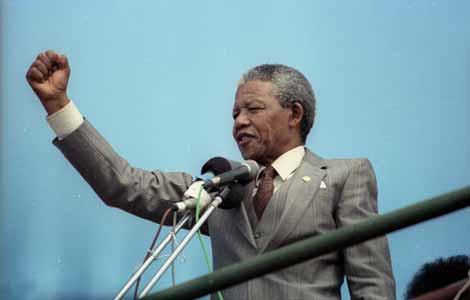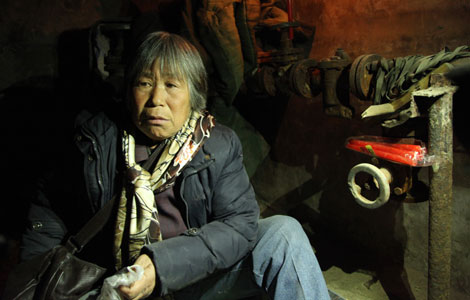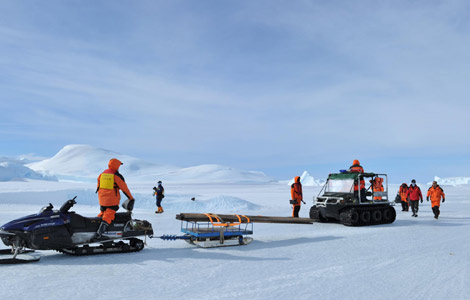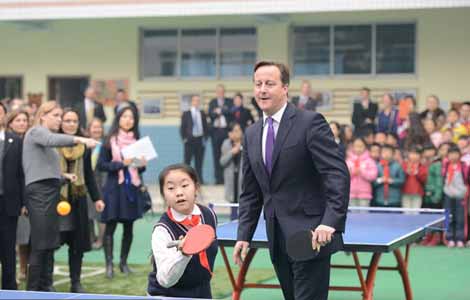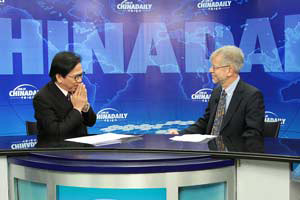Broader economic prospects pursued
Updated: 2013-12-06 00:58
By ZHAO YINAN and LI XIAOKUN (China Daily)
|
||||||||
Chinese and US leaders seek to expand cooperation in clean energy, shale gas
Premier Li Keqiang and visiting US Vice-President Joe Biden envisioned broader economic cooperation between the world's top two economies during a meeting on Thursday.
Li expressed the hope that the United States will take steps to lift an export ban on high-tech products to China and strengthen cooperation in clean energy and shale gas, according to a news release by the State Council.
Biden, who arrived in China on Wednesday for a two-day visit, said the US is willing to expand cooperation with China in clean energy, natural gas and shale gas, and push forward with talks on a bilateral investment treaty.
Biden also promised to enable Chinese investors to have easier access to the US market.
Both leaders agreed that Sino-US relations have a global impact, and the two economies are highly complementary.
The reform initiatives being proposed at the recently concluded Third Plenum of the Communist Party of China's 18th Central Committee "will bring new opportunities for Sino-US economic cooperation", Li said.
The news release did not mention if Li and Biden touched upon China's newly announced air defense identification zone over the East China Sea.
Analysts dismissed reports that disputes over the air zone were high on Biden's agenda.
Jin Canrong, a professor of international studies at Renmin University of China, said Biden's visit was scheduled in late October, before the air zone was announced.
"The discussion about the air zone with Chinese leaders may only take up a very small part of his whole agenda," Jin said. Biden's trip, his second to China since taking office in 2009, is focused more on the economy, Jin said.
"US diplomatic policy is pragmatic," he said. Biden's visit served mainly as a chance to see "what the priorities of the Chinese government will be in the next decade, and how the US could be part of it".
Niu Jun, a professor at the School of International Studies of Peking University, agreed with Jin, saying the territorial disputes between China and Japan are only a small part of Biden's agenda.
He said Biden's visit aims mainly to explore US opportunities as China is to unleash more reform measures.
Foreign Ministry spokesman Hong Lei said on Thursday that Chinese leaders and Biden had a candid, in-depth exchange of views on Sino-US relations and other major affairs of common concern.
He stressed that the most important consensus reached is that both countries should strengthen dialogue, exchanges and cooperation to construct a new model for relations between major countries.
When speaking to US business leaders on Thursday morning, Biden said China's development is very much in the interests of the US.
He said politics are about personal relations, which is why US President Barack Obama asked him to visit China, and also why he and President Xi Jinping spent so much time talking on Wednesday.
Biden described a "complex" US-China relationship and acknowledged that "we have our differences and they are real".
"But there's nothing inevitable about a conflict with China," he added. "Wholesome competition and strong competition is fundamentally different than conflict."
Biden's weeklong trip to Asia has already taken him to Tokyo and he will also visit South Korea after his visit to China.
Contact the writers at zhaoyinan@chinadaily.com.cn and lixiaokun@chinadaily.com.cn
Most Viewed
Editor's Picks

|

|

|

|

|

|
Today's Top News
Nelson Mandela has died: President Zuma
US backs Chinese military ties
In 5 years, the world's top winemaker?
Broader economic prospects pursued
Asian Americans' spend more in US
California-China trade gets boost
Cornering e-commerce fraud
FDI in 2014 looks cloudy
US Weekly

|

|
